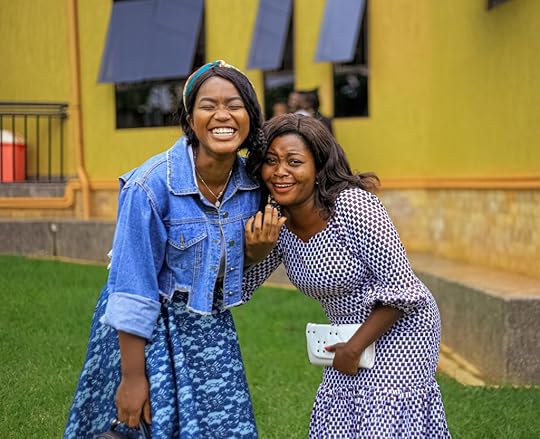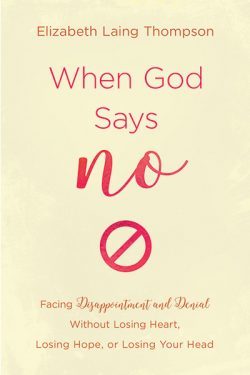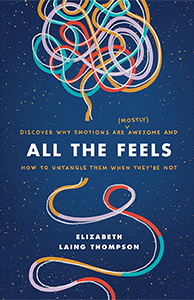When You Need to Embrace Vulnerability
He has given each one of us a special gift through the generosity of Christ. . . . He makes the whole body fit together perfectly. As each part does its own special work, it helps the other parts grow, so that the whole body is healthy and growing and full of love. (Ephesians 4:7, 16)
I wake up weeping, though I can’t remember why. I open my eyes—harsh light, white walls, masked nurse—and as the tears slide hot into my ears, memory comes crashing back: The surgery. The pregnancy. The tiny heart, flat and still.
“Oh love.” A nurse tut-tuts, bustling overhead, closing curtains around me. As if they could contain my cries. As if they could block the pain. As if they could raise the dead.
A week after my miscarriage, a job change moved us away from family, friends, and all that was familiar. We were living a tsunami of losses, wave on wave of heartache.

For a while, devoted friends checked in to ask how I was feeling. But months passed, life resumed the appearance of normalcy, and people stopped asking. At first, I was tempted to feel hurt, but then I realized: They haven’t forgotten; they aren’t being callous; they just don’t know if it’s okay to bring it up anymore. They’re afraid of sending me into a tailspin.
I remembered Jesus on the night of His arrest, how He invited friends into His heartache. No one knew what was about to happen or how much Jesus was suffering emotionally, so He invited them in: “Stay here and keep watch with me,” He begged. “My soul is overwhelmed with sorrow to the point of death” (Matthew 26:38).
Inspired by Jesus’ example, I ended up writing an email to my closest friends, saying, “This is me, giving you permission to ask me about my miscarriage. I know you are trying to be sensitive and respectful of my privacy, and I so appreciate that, but I still want to talk about it. I still need to talk about it.”
Within minutes, I got back multiple responses. Relieved responses, grateful responses. Everyone had been wondering how I was doing, but they’d been unsure if it was okay to ask.
Sending this email not only initiated the healing conversations I still needed; it also protected my heart from bitterness. The Enemy loves to whisper doubts that undermine our relationships: Why isn’t anyone asking me how I’m doing? Does anyone even care? Choosing to speak up with a vulnerable confession protected me from harboring unfair, secret expectations and allowed me to get my needs out in the open. It allowed me to get the support I needed as I continued to mourn and to heal.

When we are hurting—when God has said “no” to something in our lives—we need encouragement and support, but people can’t encourage us if they don’t know we are hurting. Sometimes we have to find the courage to tell people what’s going on. Sometimes people need permission, maybe even an invitation—to support us.
I bet you have people in your life who would be honored to keep watch with you. . .to listen. . .to serve. . .to do whatever you need. They just need an invitation. They just need you to open up.
If you struggle to admit weakness or accept help or encouragement, I hope you’ll consider a new perspective: when you gratefully accept kindness from others, you are actually giving something. You are giving other Christians an opportunity to honor God with their gifts. When you are vulnerable, you allow other people to fulfill their God-given roles. To use their gifts.
Being needy for a season is not burdensome. We all have times when we need. Your turn to give will come around again one day. And when it does, I bet you will give with a generous and glad heart because you know how much the help means to those who receive it. You’ll remember your own desperation and gratitude, and those memories will inspire and fuel your own giving.
As Ephesians 4 tells us, our wise Father envisioned a church where we would all meet one another’s needs, where we would be family—giving what we can and receiving what we need. He envisioned an intricate body, with each part playing a role all its own. And He intentionally equipped each member of His body with special talents and resources.
So, go ahead. Don’t be afraid to let someone buy you coffee. . .bring you dinner. . .give you comfort. What goes around comes around—sometimes in the best possible ways.

This article is adapted from my book When God Says, “No”: Facing Disappointment and Denial Without Losing Heart, Losing Hope, or Losing Your Head.

If you liked this post, you might also enjoy:


10 Bible Verses to Read When You’re Overwhelmed
8 Scriptures to Read When You’re Anxious



